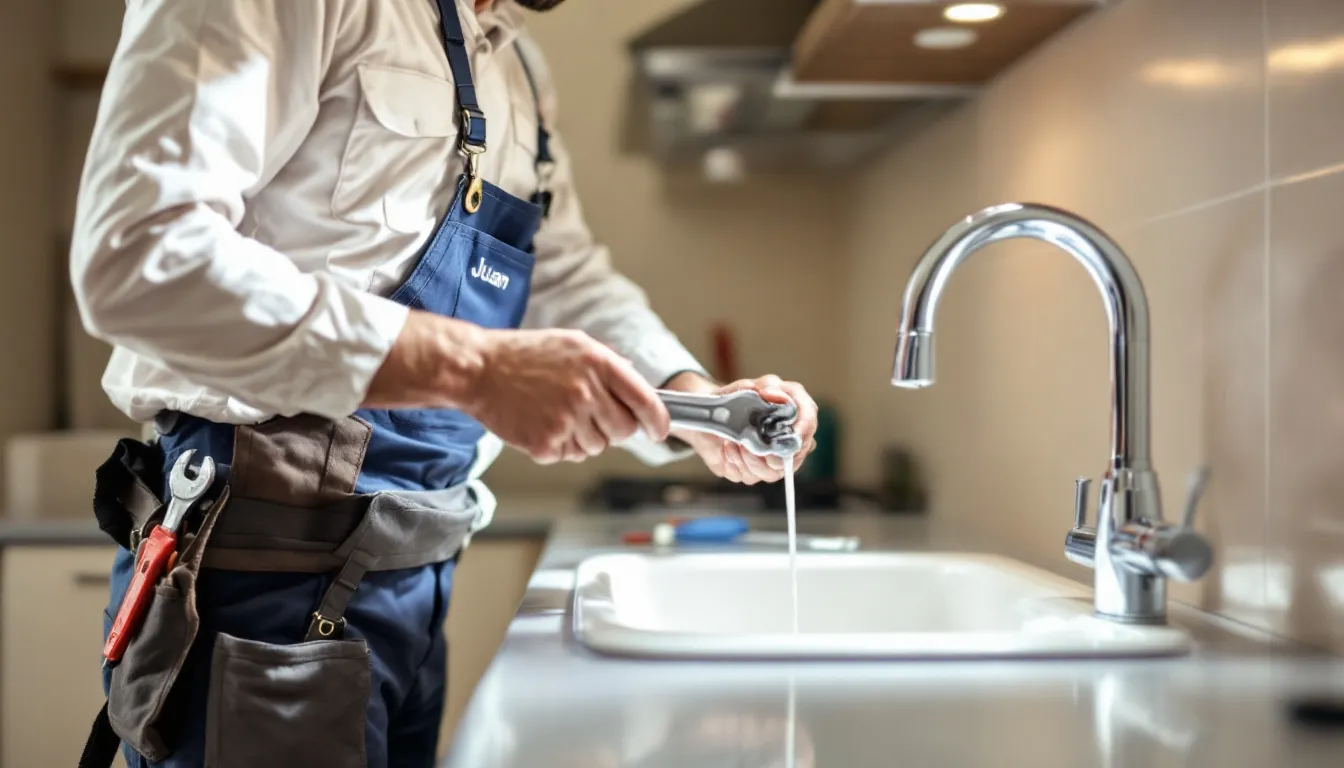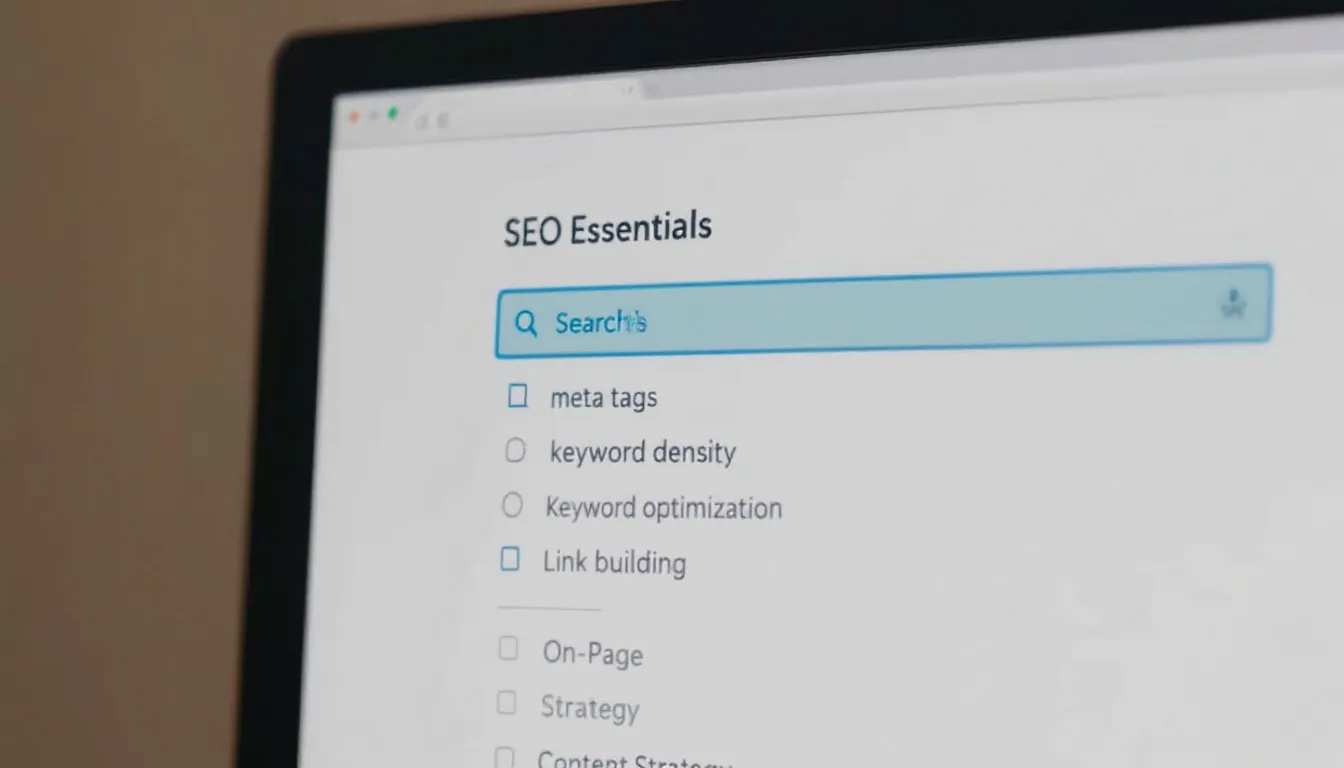
Want to show up first when people search for a plumber?
If your plumbing business isn’t appearing on the first page of Google, chances are you’re losing customers to competitors who are easier to find. That’s where a strong SEO (Search Engine Optimization) strategy comes in. It helps your business get noticed online, brings in more local leads, and grows your reputation in your service area.
Understanding Plumbing SEO
In today’s digital world, a strong online presence is essential for your plumbing business. Plumbing SEO (Search Engine Optimization) helps your website rank higher on search engines, making it easier for potential customers to find your services. Better visibility means more leads—and more business.
Plumbing SEO includes four main types:
- Local SEO targets location-based searches to attract nearby customers.
- On-page SEO improves individual web pages for higher rankings and relevant traffic.
- Off-page SEO involves actions like link-building to boost credibility and authority.
- Technical SEO ensures your plumbing website meets modern search engine requirements for speed, mobile-friendliness, and crawlability.
Together, these strategies help plumbers grow their reach and stay competitive online.
Local SEO – Helping Customers Find You Nearby
Local SEO is the foundation of your online presence if you serve a specific geographic area. It helps your plumbing business appear in location-based searches, such as “plumber in Chicago” or “plumbing repair near me.”
The first and most crucial step in Local SEO is claiming and fully optimizing your Google Business Profile (GBP). Make sure your business name, address, and phone number (NAP) are consistent across all platforms. Add high-quality images, choose the right service categories, and write a compelling business description. Regularly post updates, promote offers, and respond to customer reviews to signal to Google that your business is active and reliable.

Positive customer reviews are a major ranking factor in Google’s local 3-Pack (the top three local listings shown with a map). Encourage happy customers to leave reviews by following up via email or text after completing a job.
Also, ensure your business is listed in reputable directories like Yelp, HomeAdvisor, Angi, Thumbtack, and local chamber of commerce sites. Each citation acts as a vote of confidence, strengthening your local visibility. Embedding a Google Map of your location on your contact page and adding local schema markup (structured data) helps search engines better understand your location and services.
You can further dominate your local area by writing city-specific landing pages, such as “Drain Cleaning Services in Dallas” or “24/7 Emergency Plumber in Tampa,” targeting nearby neighborhoods or zip codes.
On-Page SEO – Make Your Website Work for You
On-page SEO refers to the elements you control directly on your website. These include your content, images, internal linking structure, HTML tags, and more.
For plumbers, it’s essential to clearly communicate the services you offer, the locations you serve, and why someone should choose your business. Start by optimizing title tags and meta descriptions.
Your title tag should include your main service and location (e.g., “Water Heater Installation in Denver | Reliable Plumbing Pros”), while the meta description should summarize the page and encourage users to click through. Keep title tags between 50–60 characters and descriptions under 160.
Keyword optimization is a key component of on-page SEO. Perform keyword research to identify high-traffic phrases like “emergency plumber [city],” “toilet repair,” “leaky faucet fix,” and other services people commonly search.
These keywords should be integrated naturally throughout your website content, especially in the first 100 words, headings (H1, H2, H3), and image alt texts. Every service should have its own dedicated landing page—don’t just lump all services into one page. A page titled “Sewer Line Repair in Phoenix” should have keyword-rich content explaining the process, pricing, FAQs, and a strong call to action like “Schedule Your Repair Today.”

Mobile optimization is non-negotiable—most users search for plumbing services on their phones, especially in emergencies. Your site should load in under 3 seconds, display properly on all screen sizes, and have click-to-call buttons prominently displayed.
Internal links between pages (e.g., linking your “Drain Cleaning” page to your “Emergency Plumbing” page) help both users and search engines navigate your site. High-quality images, videos showing completed projects, and testimonials can also boost on-page engagement and time-on-site—two positive ranking signals for SEO.
Off-Page SEO – Building Authority Beyond Your Website
Off-page SEO involves strategies that happen outside your website to improve your online authority and reputation. The most important component of off-page SEO is backlinking—getting other trustworthy websites to link to yours. Google treats backlinks like votes of confidence.
The more high-quality links your website has, the more trustworthy it appears, which can significantly improve your search rankings. For plumbing businesses, backlinks can be earned through online directories, partnerships with contractors or hardware stores, local news features, guest blogging, or sponsoring local events.
For example, if a well-known local magazine includes you in a list of “Top 10 Plumbers in [City]” and links to your website, that’s a strong backlink. Social proof also plays a part. Active social media profiles, customer engagement, and shares on platforms like Facebook and Instagram all contribute to your overall visibility.
Don’t forget about local link-building opportunities—getting links from city blogs, local newspaper websites, or school sponsorships builds local relevance and trust.

Participating in forums like Reddit or Quora by answering questions related to plumbing (while linking to your site where relevant) can also help build backlinks. Another smart tactic is to join trade organizations like the PHCC (Plumbing-Heating-Cooling Contractors Association) or local home services associations that often provide member directories and links.
Technical SEO – Making Your Site Search-Engine Friendly
Technical SEO ensures that search engines can easily access, crawl, and index your website. Without it, even the best content might never be discovered. First and foremost, your site needs to be fast.
Use tools like Google PageSpeed Insights or GTMetrix to test your site speed and fix any slow-loading elements. Compress large images, enable caching, and use a content delivery network (CDN) if necessary. Make sure your site is HTTPS-secured with an SSL certificate—Google favors secure websites in its rankings.
Mobile responsiveness is equally critical. Google uses mobile-first indexing, meaning it primarily looks at the mobile version of your site for ranking. If your site doesn’t display well or is hard to navigate on a smartphone, it could cost you rankings.
Clean, simple navigation and mobile-friendly buttons are key. Fix broken links, duplicate content issues, and redirect errors to improve your crawlability. Use a clear sitemap and submit it to Google Search Console to help search engines understand your site structure.
Also, install schema markup—this structured data helps Google understand what your content means, not just what it says. For example, plumbing service schema tells search engines you’re a local service provider and helps trigger rich results in search listings.

Don’t overlook internal linking either. A clear internal linking structure helps users and search engines discover more pages on your site. Use anchor text that includes relevant keywords like “learn more about our emergency plumbing services” to guide traffic and improve SEO.
Monitoring and Improving Your SEO Performance
Once your SEO strategy is in place, it’s important to regularly track performance. Use tools like Google Analytics, Google Search Console, and Ahrefs or SEMrush to measure how your plumbing website is performing. Look at metrics like organic traffic, bounce rate, keyword rankings, and click-through rates to see what’s working.
Google Search Console helps identify crawling errors, mobile usability issues, and opportunities to optimize existing content. Monitoring your Google Business Profile’s performance, such as how many calls or direction requests it receives, is also essential to understand your local impact.
Regularly update your website content, blog posts, and service pages to keep them fresh and competitive. SEO Services is an ongoing process—search trends change, competitors evolve, and algorithm updates happen frequently. Staying consistent and continuing to optimize your online presence over time is what separates the top-ranking plumbers from everyone else.
Final Thoughts
Ranking higher on Google isn’t just about having a website—it’s about having the right SEO strategy tailored to your plumbing business. Local SEO ensures people in your neighborhood can find you. On-page SEO makes your website relevant and clear.
Off-page SEO builds your authority and trust. Technical SEO ensures everything behind the scenes runs smoothly. Combined, these strategies form a powerful toolkit to help your plumbing business rank on the first page of Google, get more leads, and grow long-term. Whether you’re a solo plumber or a large plumbing company, investing in SEO is one of the smartest moves you can make in today’s digital-first marketplace.
At Search Pros, we don’t just create a complete SEO strategy for you—we also implement it the right way to ensure real results. From boosting your local visibility to optimizing your site performance, we handle it all so you can focus on growing your business. Contact us today to start growing your plumbing business with SEO that works.
